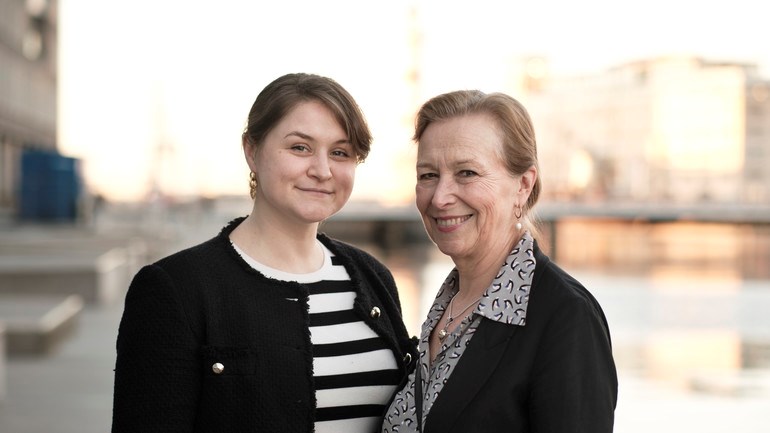We use cookies on this website. Cookies help us deliver the best experience on our website. Read about cookies.
-
- Education
- Education
- Programmes and courses
- Applications and admissions
- Tuition fees
- Scholarships
- Exchange studies at Malmö University
- Study Guidance
-
- After admission
- After admission
- Moving to Malmö
- Pre-orientation
- Arrival guide
-
- About studies at Malmö University
- About studies at Malmö University
- Why choose Malmö University
- Understanding university studies
- Connect with our students
On the page -
- Research
- Research
-
- Doctoral studies
- Doctoral studies
- Doctoral courses
-
- Doctoral schools
- Doctoral schools
- Doctoral school: Education, Learning and Globalisation
- Doctoral school: The National Research School for Professionals in Social Services
- Doctoral school: Learning in Multicultural Societal Contexts
- Doctoral school: ComBine
- Doctoral school: Swedish National Graduate School in Science and Technology Education Research
- Doctoral school: Relevancing Mathematics and Science Education (RelMaS)
- Doctoral school: Sustainable Movement Education
- Doctoral school: Finding ways in a time of great future challenges (FinnFram)
- Doctoral school: Pedagogy and Vocational Skills
- Doctoral school: Culturally Empowering Education through Language and Literature
- Adaptation of urban space through sustainable regeneration
- Research subjects
-
- Research centres
- Research centres
- Biofilms Research Centre for Biointerfaces
- Citizen Health
- Imagining and Co-Creating Futures
- Institute for Urban Research
- Malmö Institute for Migration Studies
- Literacy and Inclusive Teaching
- Centre for Work Life Studies
- Sustainable Digitalisation Research Centre
- Centre for Sexology and Sexuality Studies
-
- Research publications
- Research publications
- Search publications
- Malmö University Press
-
- Research in focus
- Research in focus
- Focus: in the classroom
- Focus: a future with AI
- Focus: climate and society
- Focus: the mouth
- Research in focus: Migration
- Focus: the war in Ukraine
- Focus: perspectives on Malmö
- Research in Focus: alone in society
- Research in focus: Peace, democracy and human rights
- Research events
- Participate in a research study
- Coffee Break Quiz
On the page -
- Collaboration and Innovation
- Collaboration and Innovation
- Innovation
- Collaboration with students
-
- Collaborate with researchers
- Collaborate with researchers
- Labs and facilities
- Culture collaboration
- Support Malmö University
- Alumni & Friends
On the page -
- About us
- About us
-
- Faculties and departments
- Faculties and departments
-
- Faculty of Culture and Society
- Faculty of Culture and Society
- Department of Global Political Studies
- School of Arts and Communication
- Department of Urban Studies
-
- Faculty of Education and Society
- Faculty of Education and Society
- Department of Childhood, Education and Society
- Department of Sports Sciences
- Department of Culture, Languages and Media
- Department of Natural Science, Mathematics and Society
- Department of Society, Culture and Identity
- Department of School Development and Leadership
-
- Faculty of Technology and Society
- Faculty of Technology and Society
- Department of Computer Science and Media Technology
- Department of Materials Science and Applied Mathematics
-
- Faculty of Odontology
- Faculty of Odontology
- Master's programmes in Dental Science
- University Dental Clinic
- Management and decision-making paths
-
- Malmö University's strategy 2030
- Malmö University's strategy 2030
- Global engagement
- Sustainability
- Widened recruitment and participation
- Quality assurance work at the University
-
- Malmö Academic Choir and Orchestra
- Malmö Academic Choir and Orchestra
- Student work – video pieces
-
- Annual Academic Celebration
- Annual Academic Celebration
- Academic traditions
- Meet our new professors
- Meet our new doctors
- The University in a troubled world
On the page
Nobel Peace Prize laureate visited Malmö University
visited Malmö University
On 2 March, Malmö University was visited by Oleksandra Romantsova, director of the Ukrainian civil rights organisation Center for Civil Liberties, which was awarded the Nobel Peace Prize in 2022 for its work for human rights, democracy and peaceful coexistence in Ukraine.
Picture

The Centre for Civil Liberties (CCL) was founded in Kyiv in 2007 to promote human rights and democracy in Ukraine, working to strengthen the Ukrainian civil society and press the authorities to make Ukraine a full-fledged democracy. As part of Ukraine's development into a constitutional democracy, CCL advocates the accession of Ukraine to the International Criminal Court.
Following Russia's invasion of Ukraine in February 2022, CCL has engaged in efforts to identify and document Russian war crimes against the Ukrainian civilian population.
"Sweden can help by collecting testimonies of war crimes from the Ukrainians fleeing to Sweden", says Oleksandra Romantsova.
During her visit to Malmö University, she met with teachers, students and representatives of University management. In Orkanen, she held an open lecture with the title 'Can human rights protect people from war in Ukraine?', discussing human rights issues:
Human rights were created as a system to prevent war. For this purpose, documents, mechanisms and goals of the organisation were created. But what went wrong? Why did a member state of the Council of Europe, OSCE and UN Security Council, Russi, attack another member state of these organisations, Ukraine? Why does the president of the Russian 'young democracy' claim that the neighboring people, their culture and state do not exist — and that these ideas have wide support among the population of the Russian Federation? And how did it happen that defending human rights in Ukraine meant the protection of democratic values in all of Europe?
The lecture highlighted the aspects that influenced the possibility of creating such a reality and outlined the prospects for the development of human rights protection in the future.